This is not just a simple traffic event, but a textbook-level case of regional collaborative development.
Written by: Daii
As professional football becomes increasingly burdened by capital, struggling under the weight of star dependency and financial pitfalls, an amateur league emerging from the grassroots is quietly reshaping our imagination of the sports industry with its almost wild vitality.
This is the "Su Super" phenomenon that erupted in Jiangsu in the summer of 2025—a seemingly grassroots amateur event that has produced a striking reality curve. It not only ignited a fan frenzy but also, with astonishing efficiency, wove a high-resilience economic network spanning 13 cities.
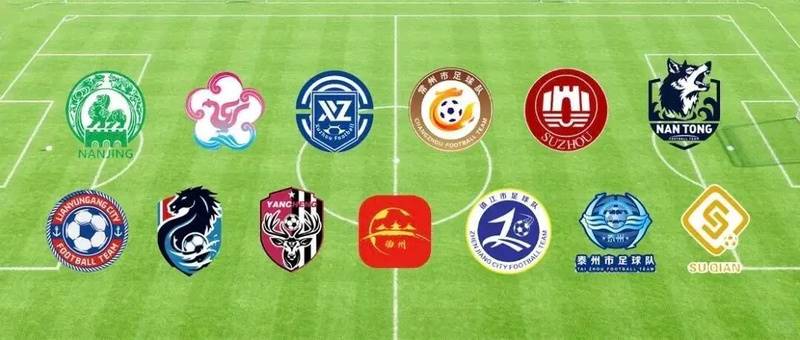
This is not just a simple traffic event, but a textbook-level case of regional collaborative development. The core of it is: Su Super successfully built a "sports-driven regional economic public chain"—connecting distributed urban nodes to form a value system of spontaneous collaboration and self-valuation.
Here, no matter who you are—whether a city, a brand, or an ordinary fan—as long as you are willing, you can "Su Super": place two footballs at the foot of the Ling Shan Buddha, arrange five planes to fly over the stadium, post a video to play a meme, design a city package… all can become effective "interactions" within the network.
This is precisely what is often referred to as "public chain thinking" in the blockchain economy:
No permission needed, everyone can participate; everyone can contribute, and everyone can benefit; the more participation, the more prosperous the system.
When you look back at Su Super from this perspective, you will find that what it ignited is not just the enthusiasm of fans, but a perfect interpretation of the spirit of blockchain in the real world.
1. Su Super: A "Public Chain" Open to Everyone
In the world of blockchain, "public chain" means no permission needed, everyone can participate, and nodes benefit themselves while adding value to the whole. This may sound like a technical term, but Su Super has vividly illustrated this concept in the real world through a provincial football league.
1.1 Ling Shan Buddha: Can a Sacred Place "Ride the Wave"?
On June 15, 2025, Wuxi hosted a match against Changzhou. Before the game, fans unexpectedly discovered that two large black and white football models were placed at the foot of the Ling Shan Buddha.
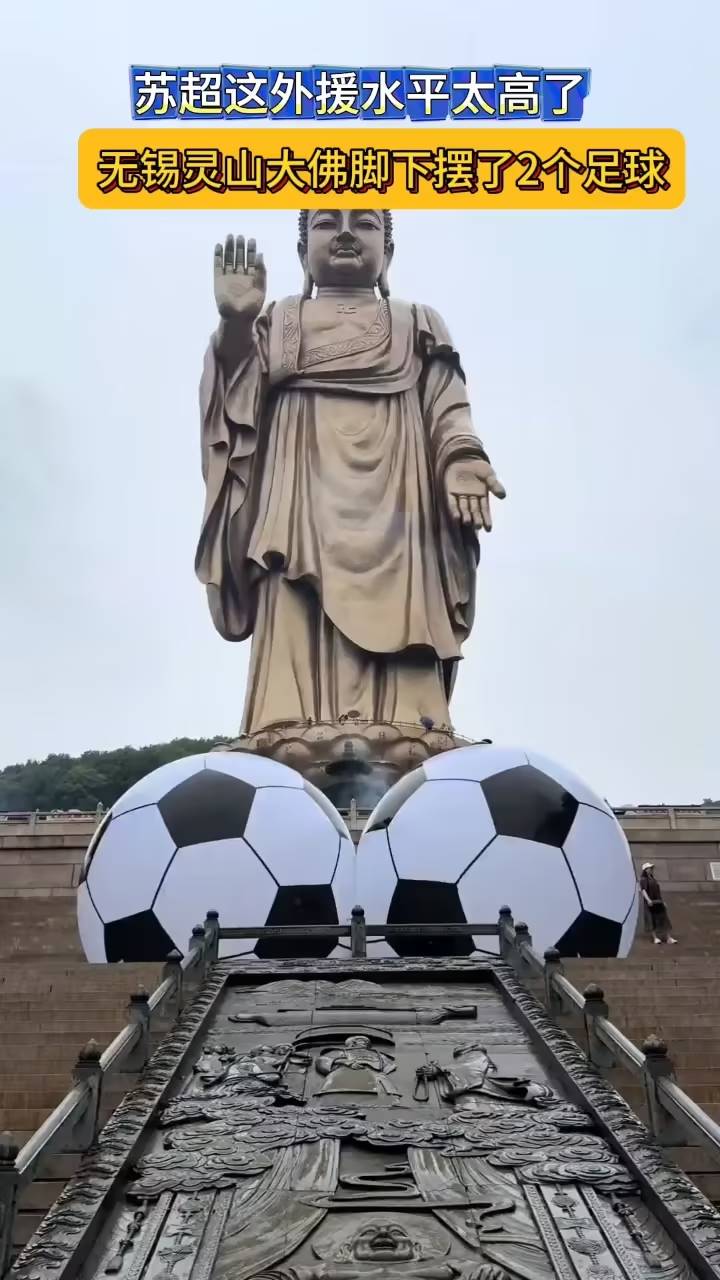
There was no notification from the organizers, no government approval, and certainly no "official sponsor area" like traditional events. The two balls simply sat there—both solemn and humorous.
But it was clear to everyone that this was a brilliant example of "opportunistic marketing": the Buddhist sacred site of Ling Shan used the lightest touch to ride the wave of football enthusiasm; the appearance of these two balls immediately ignited social media traffic, placing Wuxi at the "center of the topic" outside the Su Super stadium.
Ironically, Wuxi won the match against Changzhou by two goals. Netizens jokingly commented: "Blessed by the Buddha, Ling Shan shows its power." Meanwhile, Wuxi "Buddha-style victory" directly harvested a wave of brand goodwill.
This is a typical case of "self-benefiting nodes": the Buddha gained exposure, the city gained topics, and Su Super gained traffic—a win-win situation.
1.2 Flying Over Yangzhou: 5 Planes "On the Chain," Everyone Looks Up
On June 14, another event that could be called a "chain spectacle" unfolded in the Yangzhou competition area.
Before the match began, five civilian planes flew in formation low over the stadium, trailing neat white smoke lines, resembling an aerial show.
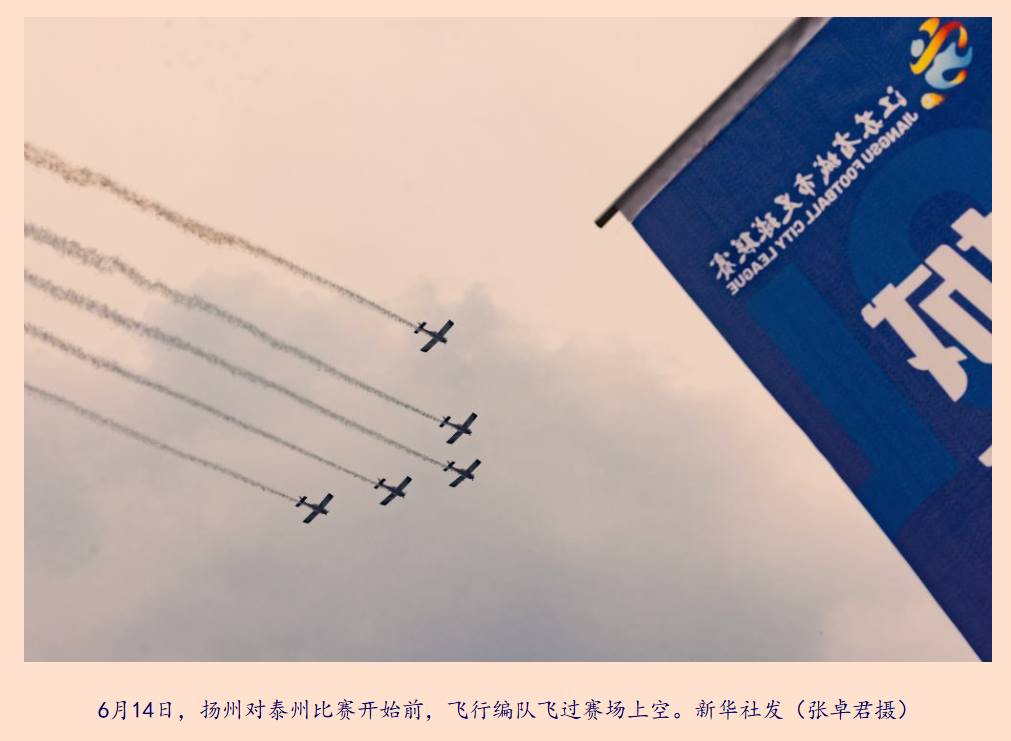
Fans in the stands collectively looked up and cheered, and social media was instantly flooded with comments: "Whose planes understand the fans so well?" "This is what we call aerial support!"
It was later revealed that this was a carefully arranged "action" by an airline company—they spent not a penny and did not seek permission from the organizers, but leveraged the popularity of the Su Super stadium to create a "surprise in the sky" that made a strong impression.
What was surprising was that this kind of "self-insertion" behavior was not rejected; instead, it was warmly embraced by fans and became a highlight of the Su Super league.
This is the best portrayal of "public chain-style participation": any node, as long as it has creativity and can activate value, can participate; and every time it participates, it contributes to the overall value of the network.
Su Super did not stop the planes from flying over, nor did it require the stadium area to be clean and tidy or prohibit "unofficial collaborations." It set no defenses, no limits, and even no thresholds—if you can bring attention and value, then you are a legitimate "node" in this system.
Whether it's placing balls in front of the Buddha or planes flying across the sky, on the surface, it seems like opportunistic marketing, but in reality, it is also directing traffic to Su Super.
Each node creates its own benefits while feeding traffic back to the entire system, achieving true "self-benefit equals mutual win."
1.3 Playing Memes Equals Co-Creation, Video Accounts as the "Second Stadium"
The "public chain thinking" of Su Super does not only belong to local governments or corporate organizations; it truly ignites the creativity of every ordinary person. The real stadium is on the green field, while the "second stadium" of the internet unfolds in video accounts and comment sections.
Here, every joke, every meme image, is a spontaneous co-creation of "nodes," and every click and share is a consensus vote on "on-chain content."
For example, the old meme of "Bulk Jiangsu" was completely activated by Su Super. The 13 city teams took turns "battling," and the Jiangsu map seemed to be stirred up, with a wave of football enthusiasm sweeping in. Thus, the official "meme" certification: competition first, friendship fourteenth.
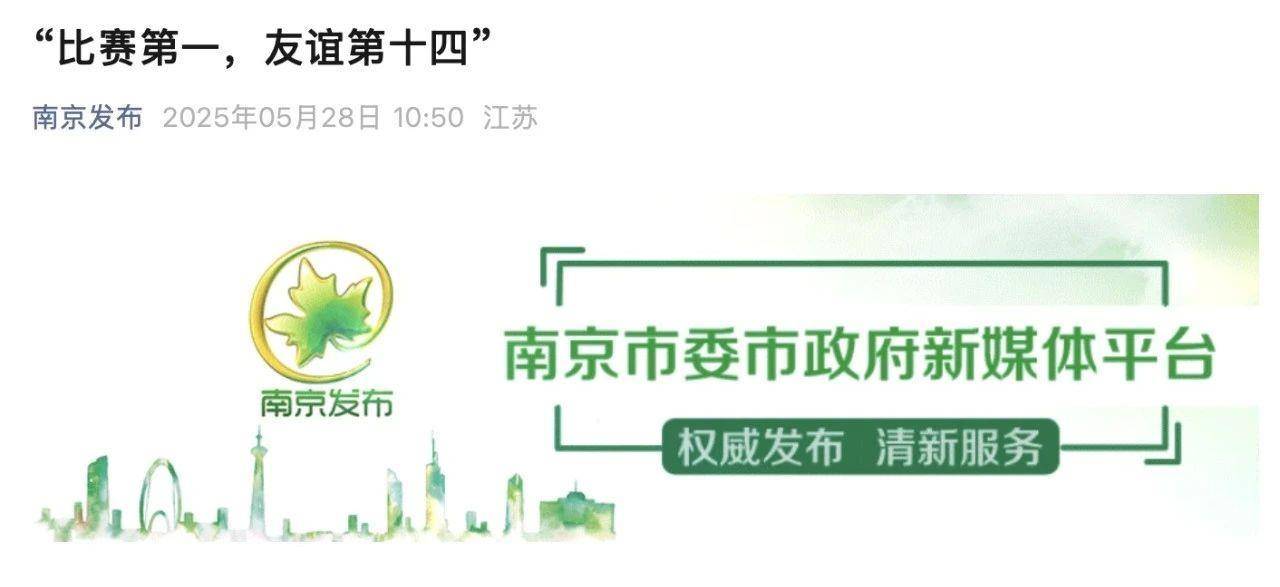
Su Super thus launched the "Meme King Competition," and fans' creativity never disappoints:
Changzhou's poor performance led netizens to humorously refer to it as: "From Changzhou to Hanging State, then to Towel State, finally becoming | State—there aren't many strokes left for Changzhou."
Suzhou vs. Wuxi, the two teams drew 1:1, and fans cleverly summarized: "Suzhou preserved Taihu, Wuxi preserved the airport."
Nanjing vs. Wuxi became "Salted Duck vs. Honey Peach," losing means "Salted Peach," winning means "Salted Duck with Sugar."
Xuzhou vs. Suqian directly escalated to the "Chu-Han Controversy," a fateful showdown.
Nanjing vs. Nantong turned into the ultimate PK of who is the real Nan Ge.
Taizhou vs. Nantong, fans placed bets: "Win means breakfast, lose means writing an exam!"
Interestingly, even local cultural tourism and official accounts joined in to "play memes," actively embracing this low-threshold content co-creation culture.
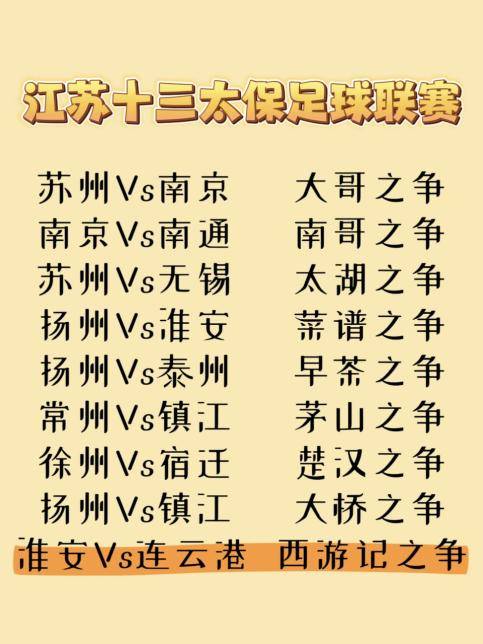
Here, the nodes of Su Super are no longer just teams or enterprises, but every fan with a meme. Your creativity gets shared, your jokes trend, your account gains attention, and the league thus gains broader traffic and deeper cultural ties.
This is a natural, permissionless participation model:
Everyone is a node, everyone is a creator, and everyone is also a beneficiary.
Su Super has no platform tax, no thresholds, no centralized content review mechanism; because of this, it has become a "multi-centered content ecosystem," truly achieving: co-creation and mutual benefit of traffic and popularity.
This is the most important real-world interpretation of "public chain thinking": value is not created by a single entity, but grows naturally through widespread participation.
2. Self-Benefit Equals Mutual Win: Why Can Su Super Succeed?
If you observe closely, you will find that football here is no longer an isolated 90-minute event, but an "economic singularity" that activates the vitality of the city. The match is just a fuse, igniting the fireworks and commercial momentum of the entire city.
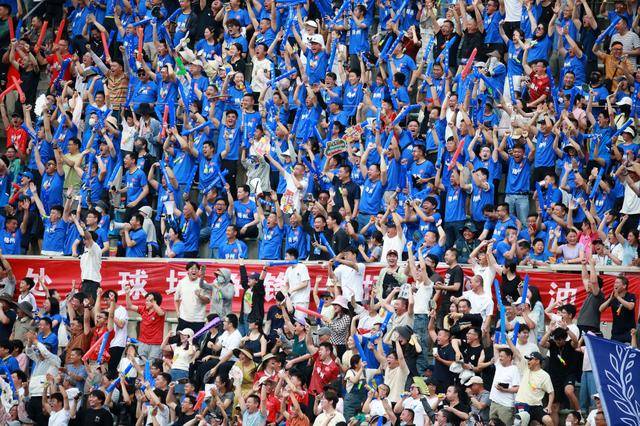
Changzhou launched a "9.9 yuan ticket + a bowl of local specialty radish fried rice" package, which was sold out immediately upon launch. The head of the sports department stated that this idea not only brought traffic but also effectively boosted the recovery and growth of the surrounding catering industry.
Yancheng took a different approach, leveraging its ecological advantages to offer a "Bird Watching + Match Watching" package, attracting over 20,000 bookings in just three days during the Dragon Boat Festival holiday.
The Zhenjiang Xijin Ferry scenic area also seized the opportunity, cleverly linking match days with the "night tourism economy," resulting in a threefold increase in night tour visitors on match days, becoming a new benchmark for cultural tourism recovery post-epidemic.
According to UnionPay Business data, the off-site cultural tourism consumption amount in the six main cities of "Su Super" during the Dragon Boat Festival holiday increased by 12.94% year-on-year, with football events rapidly becoming a "traffic entry point" for urban tourism.
Why did "fighting alone" not lead to resource waste and internal competition, but instead achieve overall mutual benefit?
This is because Su Super formed a "distributed node incentive mechanism" from the very beginning: each city has complete autonomy in decision-making, investment attraction, and execution, allowing each node to mobilize its resources most effectively to participate in ecological construction. There are no upper-level red-tape documents, no mandatory assessment tasks; each city spontaneously views the event as an opportunity for its own development and promotion, operating in a more flexible and market-oriented manner.
It is this "self-governing" node model that allows each participant to pursue their own interests while inadvertently feeding back into the entire event system. The innovation and success of each node stimulate other nodes to join this positive competitive chain, thus forming greater ecological prosperity.
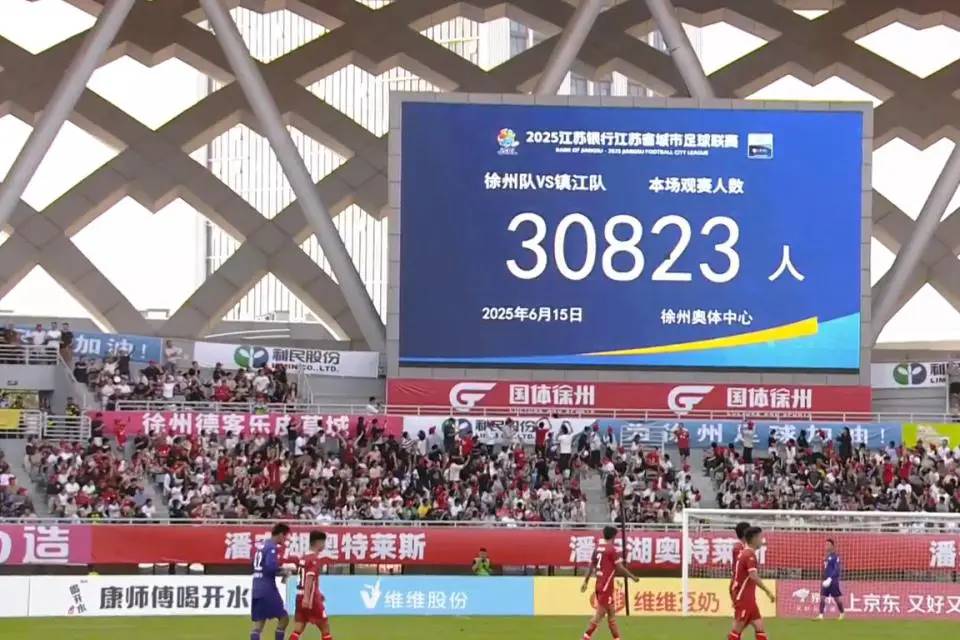
Therefore, what Su Super truly achieved is not just a successful sports event, but a new collaborative paradigm centered on "self-governing nodes" that is low-cost, high-consensus, and strongly viral.
It proves that:
The self-interest of each node does not mean separation; rather, it is the key driving force for the overall prosperity of the system; each participant's pursuit of self-interest constitutes the mutual growth of the entire ecological value.
Perhaps this is the most profound insight that Su Super brings to us. Of course, it is effective because this is also the fundamental logic of a market economy.
3. The Will of the People is the Best "Co-Building Mechanism"
As I write this, I suddenly recall a saying:
Truly great mechanisms do not rely on technical accumulation, but come from the natural cooperation of the human heart.
What excites me about Su Super is not only its thrilling matches, affordable ticket prices, and vibrant atmosphere, but also the way it instinctively shows us what a true "open system" looks like.
It operates without big capital manipulation and complex protocol designs, yet it has successfully run a highly vital "real public chain":
No permission needed, anyone can participate.
Each city, as a "node," acts in self-interest while benefiting collectively.
Every creative idea, every purchase, every cheer adds value to the system.
This is the core of "public chain thinking":
It does not wait for orders, does not rely on a center, but is driven by consensus and built by everyone.
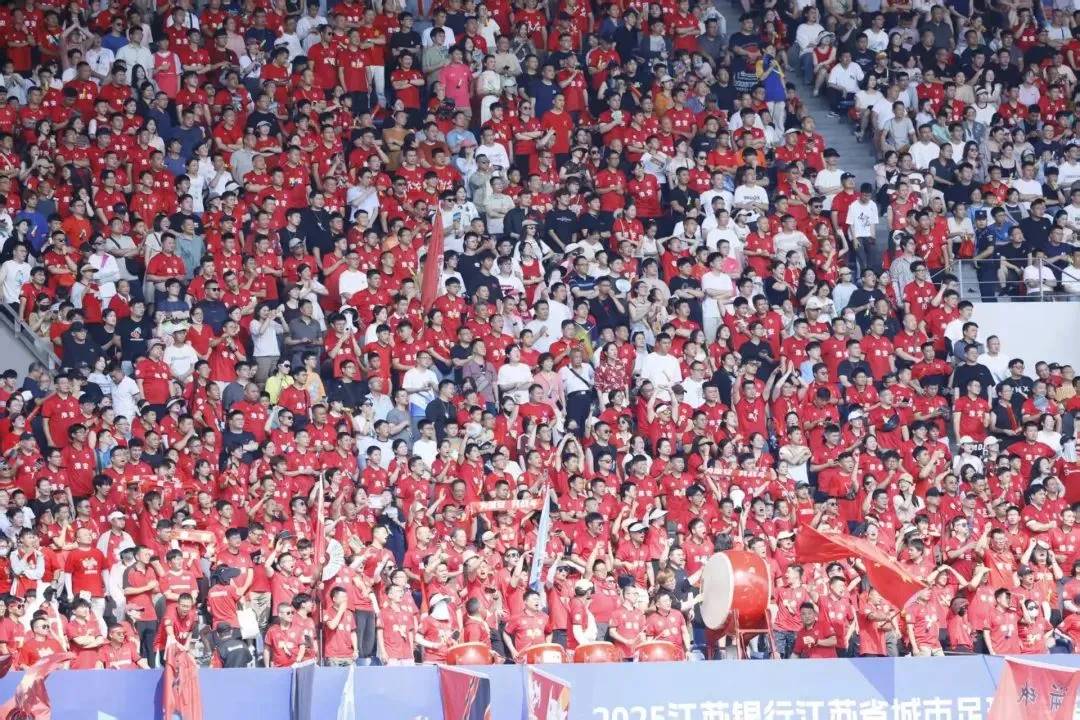
You might ask: Why can't the Chinese Super League replicate Su Super?
The answer is quite simple: because the Chinese Super League is no longer a public chain.
It resembles a private chain—power is centralized, access is limited, and content and resources are managed by a few; or it can be seen as a consortium chain—participants need identity verification, content has boundaries, and rules are set by the "upper level."
And what about Su Super? It does not ask who you are or limit what you can do. Want to place two balls in front of the Ling Shan Buddha? You are a node. Want to create a "Bird Watching + Match Watching" package? Welcome to join. If you create a hilarious meme? You are contributing to the system.
In the world of Su Super, "anyone can" is not just a slogan, but a consensus.
And consensus is the most stable foundation for the operation of any system.
Conclusion: Su Super is not a revolution, but a reminder.
It has not overthrown anyone, yet it has quietly rewritten the underlying logic of "how football operates." There are no grand narratives, no capital crowning; it simply throws an old question back into the crowd in the most down-to-earth way:
Who decides the outcome, and who deserves the applause?
Su Super answered with action—not authority, not financial power, but consensus and collaboration.
The true vitality of a system has never been nourished by a center, but rather ignited by its nodes.
You cannot monopolize power and simultaneously fantasize about shared prosperity; the law of conservation of energy in this world never indulges the greedy.
The miracle of Su Super may be hard to replicate, but the "public chain-style trust" it evokes is becoming a signal of the times:
It’s not about who wins the future for you, but whether you are willing to forge it together with others.
In this era that increasingly emphasizes distribution, participation, and respect for marginalized voices, what Su Super does is not seize power, but return it.
And this is the starting point for all great systems.
Finally, back to the world of blockchain, do you want to know the current status of the largest public chain? Reply "Big Public Chain" to the official account.
免责声明:本文章仅代表作者个人观点,不代表本平台的立场和观点。本文章仅供信息分享,不构成对任何人的任何投资建议。用户与作者之间的任何争议,与本平台无关。如网页中刊载的文章或图片涉及侵权,请提供相关的权利证明和身份证明发送邮件到support@aicoin.com,本平台相关工作人员将会进行核查。




